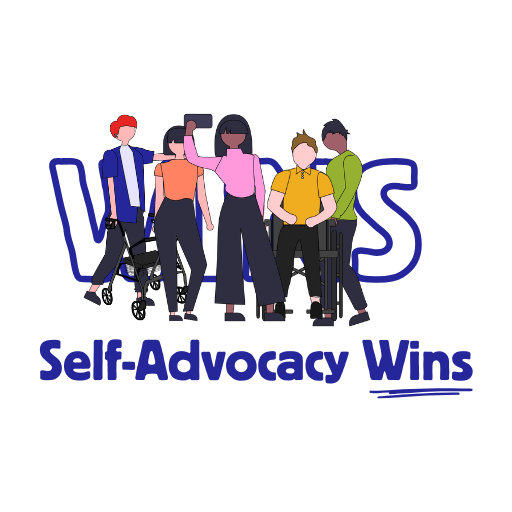Self-Advocacy Wins, the first social media platform specifically designed for individuals with intellectual and developmental disabilities (IDD), is now available. Created by Kelsey Oates, a UX designer and autistic entrepreneur who has worked in the IDD field throughout her adult life, the platform addresses critical gaps in accessibility, safety, and community connection that exist on mainstream social networks.
The launch comes at a time when federal funding for IDD programs, like Medicaid, faces potential cuts. With uncertainty facing federal programs supporting community living for people with disabilities, platforms like Self-Advocacy Wins are even more critical for maintaining connections and organizing advocacy efforts. Oates hopes the platform will serve not only as a social network but as a space for organizing and mutual support within the self-advocacy movement.
“Traditional social media platforms fall short — they're often inaccessible, confusing, and unsafe," said Oates. "Self-Advocacy Wins was built on the core principle of 'nothing about us without us,' developed with continuous input from self-advocates, and informed by close personal and professional relationships with people with IDD. This platform allows self-advocates to connect with peers in a safe, accessible environment where they can express themselves, boost their self-esteem, make friends, find dates, and feel supported while pursuing their independence."
The platform addresses a significant need in the IDD community, where isolation is common and existing social networks present barriers ranging from complex interfaces to inadequate safety measures. Many individuals with IDD struggle with traditional platforms' password requirements, overwhelming features, and vulnerability to exploitation. Oates designed the platform to address these common challenges and concerns, including:
- AI-generated alt text for all images using easy-to-read, plain language
- Pre-populated positive comments on user posts to prevent bullying
- Built-in content moderation scans for scams, spam, and inappropriate content
- Group account functionality allows organizations to easily onboard multiple users
- Supporter view provides read-only access to chats for parents, guardians, or staff (the self-advocate must grant access)
- "Wins" posting feature enables users to celebrate achievements and receive positive community support
- Find a Friend and Find a Date features connect users based on shared interests and posts
- Accessibility design accommodates users with physical disabilities, visual impairments, and varying literacy levels
- Enhanced safety protocols prevent the exchange of personal contact information within the platform
"[Kelsey and I] started our relationship as work colleagues at a statewide organization called Mass Advocates Standing Strong, then we started Self advocacy wins podcast in January in our friendship, continued to grow along the way, so we became besties,” said Kamisha Heriveaux, Oates' Self-Advocacy Advisor and co-host of the Self-Advocacy Wins Podcast. ”The thing I love about our relationship is that we are able to be ourselves with each other and that shows with in the podcast! Overall, Kelsey is amazing to work with and be around as an individual and I can't wait to see where our friendship and podcast takes us!"
Self-Advocacy Wins offers a free tier for self-advocates that includes full access to platform features, including chat and dating. Group accounts operate on a subscription model at $10 per month per user, allowing supporters to organize and manage accounts for multiple users. The platform is designed to serve everyone from highly independent users who can navigate technology solo to those requiring significant support from supporters.
The platform is now live at selfadvocacywins.com. Organizations interested in group accounts can contact Kelsey Oates at [email protected].
Self-Advocacy Wins is the first social media platform designed specifically for individuals with intellectual and developmental disabilities (IDD) and their support networks. Founded by autistic entrepreneur Kelsey Oates, and developed in part through a Gopen Fellowship, an initiative of the Massachusetts Development Disabilities Network, and CIC Massachusetts’ Social Impact Cohort, the platform prioritizes accessibility, safety, and authentic community connection. The company is committed to the principle of "nothing about us without us," ensuring that people with disabilities remain central to all development decisions.

